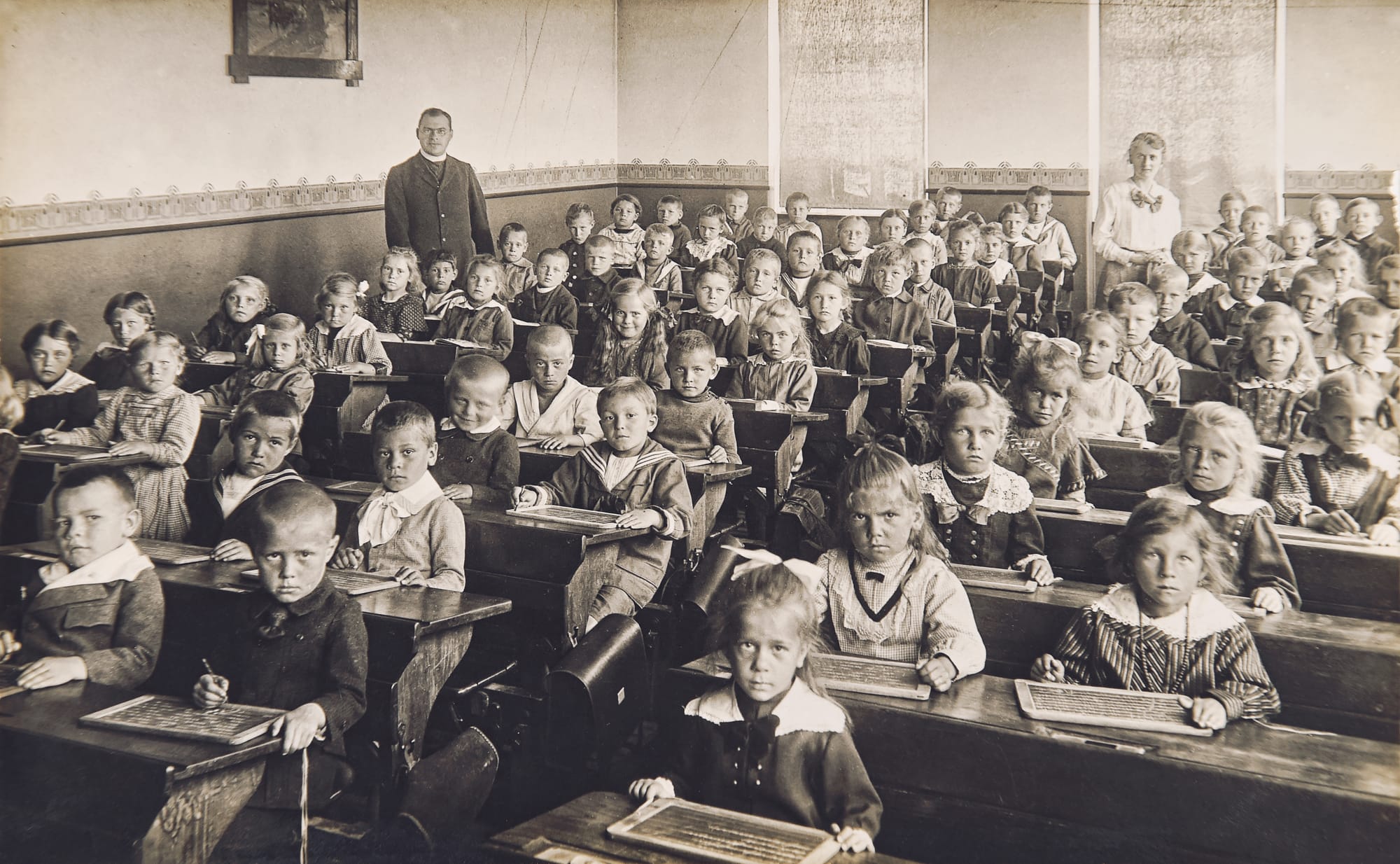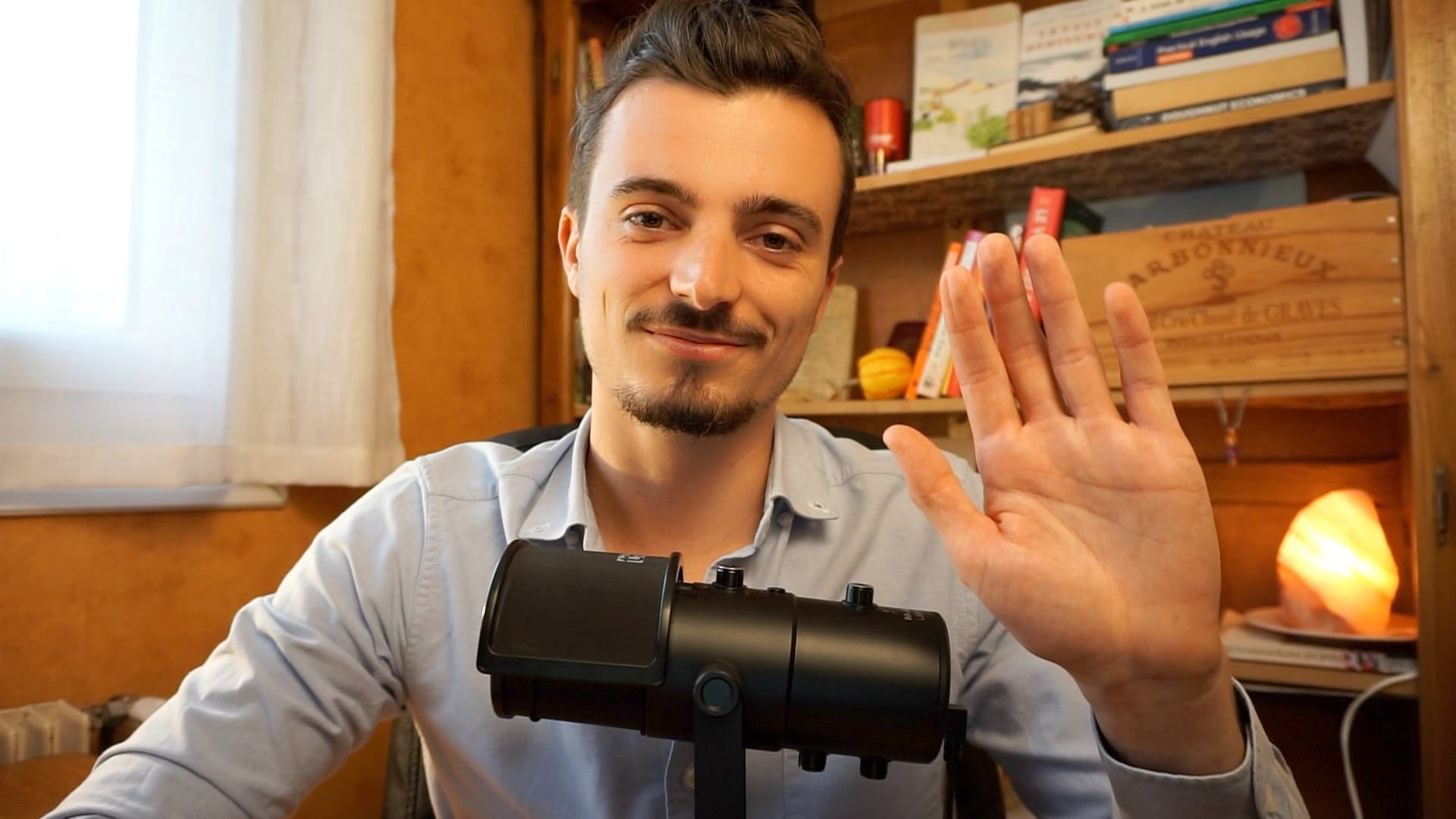🇫🇷👂Lesson 003 - From L to V: The Tiny Sounds That Change Yesterday to Tomorrow
Bonjour!
In this week's lesson, we're going to learn to recognise when someone talks about the past or the future — by ear (and in the context of talking about the weather's temperature).
Picture this:
You're walking back home and bump into Marie, one of your neighbours. She says bonjour with that lovely high pitch, smiles and says something about cold weather. Thing is, you don't know if she's just commenting on yesterday's temperature or if she means it's going to be cold tomorrow.
Hard to blame you - the sound difference can seem subtle at first. Let's see if you'd catch it:
Honest Spelling: What you hear
🗣️👂i-va-fèr-frwa
Sounds vanish the second you hear them. Honest Spelling captures them on the fly and puts them on pause, giving you all the time you need to explore each part. It may look foreign at first, but it's exactly what your ears have to deal with. Try to identify words before clicking on the next section to reveal the spelling.
What we write
🔡📜 il va faire froid
Sadly for us all, French Spelling loves playing hide-and-seek with sounds. Take a second to compare the ‘Honest Spelling’ with the actual spelling to connect the dots between what we write and the sounds we make:
- i-va-fèr-frwa
- il va faire froid
Then, make your best guess as to what these words mean, and click on the next section.
What it means
🇬🇧🇺🇸 it's going to be cold (the weather)
literally "it goes make cold"
We have a saying in France that goes, "c'est en forgeant qu'on devient forgeron" (it's by forging that one becomes a blacksmith/forger). Indeed, the best way to get good at something... is to try doing that thing. Whether you got it right or not, you've just done that. Bravo.
Now let's listen to the same phrase but in the past:
Honest Spelling: What you hear
🗣️👂i-la-fé-frwa
What we write
🔡📜 il a fait froid
What it means
🇬🇧🇺🇸 it was cold
literally "it has made cold"
Note: Contrary to the English "it has been cold", "il a fait froid" does not necessarily imply it's still cold now. It just says "Yesterday was a cold day" (or last week, or last weekend, etc...).
Il va faire froid / Il a fait froid. The difference is obvious in writing. But your neighbour didn't text you - she used sounds to communicate with you.
That's why this lesson mirrors the natural way your brain processes spoken French (click to read)
- Pure sounds come into your ears
- You map those sounds to French words you know
- You connect those words to meanings (initially through English words)
With practice, your brain becomes better at doing all these steps simultaneously and automatically. For now, we're walking through them carefully, but soon you'll find yourself doing it at lightning speed — at the speed of conversation.
We have a problem, though.
There are tens of thousands of French words — memorising their pronunciation one by one would take longer than it took the "Immortals" of the Académie Française to write their latest dictionary (they started in 1986, finished last year). Do you really want to spend all that time like them, buried in textbooks?
That's why instead of just teaching isolated words, I'm going to break down the patterns behind French sounds. This will help you develop pattern recognition skills you can apply to many other French words — like having a few master keys that unlock entire neighbourhoods instead of needing one key for each individual house.

Beyond Text: Make Sense Of The Sounds 🗝️👂
Let's compare the sounds of il va faire froid and il a fait froid.
- i-va-fèr-frwa
- i-la-fé-frwa
The difference between é and è can be hard to catch for English-speakers' ears, so we're essentially left with just two short consonant sounds to tell the two phrases apart: v/l and r/nothing.
- i-va-fèr-frwa
- i-la-fé-frwa
Of course, your neighbour is likely to add hier (yesterday) or demain (tomorrow), clearing up any possible confusion. But by training your ear on those two phrases' sound differences, you'll get a firm foundation to distinguish between past and future forms in more ambiguous situations.
Essentially, we're laying the groundwork for future learning.
First, let's make sense of the pronunciation of il va faire froid and il a fait froid, word by word.
👉 i-va-fèr-frwa
- 🗣️👂 frwa
- 🔡📜 froid (cold)
- 🤫🤦♀️ Letters On Strike: froid - the "d" is silent when it's the very last letter of a French word (with only one exception: "sud" (south), and of course words of English origin, like "un iPad").
- 🔡❓Why we write it that way:
- frwa - that sound most commonly comes from the letter combination "oi". Why don't you simply write "wa" then, you crazy froggies, I hear you ask. Good question. It's because we confuse letters with castles:
- In the 12th century, "oi" was pronounced how it should, as in "oh you're a good boi" 🐶. But you know humans, we get bored. We change things. Over time, people shifted from saying o-i to o-é, then shortened to wé and finally to wa.
- 🏰 And because some people treat spelling like it's a castle, set in stone, well, they forbid anyone from updating the spelling. If you ask me, preserving old things is a great idea when it comes to castles. When it comes to spelling, not so much.
First, il va faire froid:
👉 i-va-fèr-frwa
- 🗣️👂 fèr
- 🔡📜 faire (to make/do)
- 🔡❓Why we write it that way:
- fèr - for once, the North and the South of France agree on the pronunciation of "ai"! Hallelujah! Vive la République! When there's a consonant sound after "ai", we tend to all pronounce it è.
👉 i-va-fèr-frwa
- 🗣️👂 i-va
- 🔡📜 il va (he/it goes/is going to)
- 🤫🤦♀️ Letters On Strike: il - Make sure no French speaker is looking over your shoulder, I'm about to reveal one of our dirty little secrets. We often don't pronounce the L at the end of il when saying "il va". That's because it's such a common phrase that it's unmistakable. Some French people enter a state of utter denial when I point this out ("Moi? How dare you!"), but lips don't lie - we even do it on TV, completely unwittingly of course. Because we don't listen to ourselves speak (why would we). We even do it in all sorts of other phrases with il, elle, and even ils and elles! But I digress - more on that in another lesson.
- 👄🔄 Pronunciation Variations:
- il-va — so-called "proper" pronunciation. It's less common in everyday conversations than i-va, but it doesn't sound overly formal either.
- i-va — the most common pronunciation.
- va — not very common. Gives off the same vibe as s'gon' be hot 'morrow.
Now, il a fait froid:
👉 i-la-fé-frwa
- 🗣️👂 fé
- 🔡📜 fait (makes/does OR, in this case: made/done)
- 🤫🤦♀️ Letters On Strike: fait - The "T" is the most famous silent letter in French - it hasn't shown up to work in centuries. As such, we generally do not pronounce it when it's the very last letter of a French word (this excludes words of English origin, like Internet, kit, set...). There aren't many exceptions to this. The most useful ones are but, sept, huit, août, ouest, est and most words that end in -ct/-pt, like concept, direct, exact… These exceptions will stick naturally as you hear them used.
- 🔡❓Why we write it that way:
- fé - that sound can simply come from the letter "é", or when we feel fancy and want to add letters, it can come from the letter combination "ai".
- To be honest, the "ai" thing is a bit of a contentious topic.
- In the southern half of France (roughly), we keep it simple and pronounce "ai" exactly like "é", most of the time. Note: this is not a thick Southern accent, just a normal pronunciation in the South.
- In the northern half of France, they sometimes pronounce it like "é", sometimes like "è", and sometimes a mix of the two. Something about the cold must make their vowels shiver 😉
- That's a relatively modern pronunciation shift, so traditional phonetic transcriptions often miss that nuance.
- All in all, the difference between Southern and Northern pronunciations is small and shouldn't worry you as a learner. It's only there for certain Parisians to smugly declare their French the 'purest' (whatever that means 🤷).
- The é sound can also come from:
- Verbs ending in "-er" and "-ez" (manger, voulez...)
- One-syllable words ending in "-es" (les=lé, des=dé...)
- Longer words ending in "-et" (poulet, objet, bouquet...)
- The same earth-shattering North/South debate happens with "-et/-es". The sound difference is small and I want you to spend less time studying and more time in the sunshine, so I keep things simple and default to é. French is complicated enough as is.
👉 i-la-fé-frwa
- 🗣️👂 i-la
- 🔡📜 il a (he/it has)
- 🔡❓Why we write it that way:
- Why i-la and not il-a? This is a good example of how spaces in writing can be deceptive. In speaking, we connect sounds together in the way that flows best, not in the way indicated by spaces on paper. So words often get blended together, like the branches of trees when daydreaming and gazing at them from a fast-moving car.

Beyond Rote: Make Sense Of The Words 🗝️📜
Purpose of this section:
Did you know the French word for "understand"—comprendre—literally means "to take with you" (con-prendre)? As often, folk wisdom was onto something: to truly understand something, we need to connect it to what we already know—to take it with us into our existing mental landscape.
So let's give each French word a rich context—its cultural nuances, how it's actually used by real French people, its personality quirks and the little stories that make it stick in your memory without effort.
When a word has a story, it's no longer just a collection of sounds and letters—it's a quirky Michel you're happy to bump into again. So let's breathe life into these sounds by connecting them to meaning.
👉 il va faire froid
- 🧠🪝 Memory Hooks to avoid confusing chaud and froid: Think of "Ouch! C'est chaud!" and "The fridge is froid" (the last two actually have the same origin).
👉 il va faire froid
- il usually means he, but here it means it and it's impersonal - it doesn't represent a person. Instead, it represents the weather: it is hot = the weather is hot.
- va usually means goes, but here we use it to for the future tense, like in the English tense it's going to be cold.
- faire usually means make/do, but it's also the verb we use to talk about ambient temperature.
- il fait froid = it is cold
- il va faire froid = it's going to be cold
👉 il a fait froid
- il usually means he, but here it means it and it's impersonal - it doesn't represent a person. Instead, it represents the weather: it is hot = the weather is hot.
- a usually means has, but here we use it to for the past tense, like in the English tense it has been cold.
- fait can mean makes/does OR, in this case: made/done, which is silly because those are two different tenses. But you can't blame us for this one. It's not like English is innocent here... tell me if the phrases I read or I put it in the kitchen are in the present tense or in the past 😈
- fait is also the verb we use to talk about ambient temperature.
- il fait froid = it is cold
- il a fait froid = it has been cold (though the meaning is closer to it was cold, in most cases).
Let's Recap 🧠💪
Remember, Active learning beats passive consumption. And you know what beats active learning? Active re-learning.
It's no coincidence that most words related to successful learning start with "re" (remember, recall, retrieve, reconnect... rappeler, retrouver, relier...). Each time you pause, recall, and re-connect the dots, you create deeper, more resilient memories. Your ears become more attuned, your comprehension more fluid. You transform fleeting sounds into lasting, physical neural pathways.
Ready? Let's reinforce some neurons!
Honest Spelling: What you hear
🗣️👂i-la-fé-frwa
What we write
🔡📜 il a fait froid
What it means
🇬🇧🇺🇸 it was cold
literally "it has made cold"
Note: Contrary to the English "it has been cold", "il a fait froid" does not necessarily imply it's still cold now. It just says "Yesterday was a cold day" (or last week, or last weekend, etc...).
Honest Spelling: What you hear
🗣️👂i-va-fèr-frwa
What we write
🔡📜 il va faire froid
What it means
🇬🇧🇺🇸 it's going to be cold (the weather)
literally "it goes make cold"
Et Voilà!
And there you have it – another glimpse into real, living French.
When you're ready to dive deeper, subscribe for the full lesson: diving deeper into one of the most puzzling pronunciation phenomena in French.
No pressure though. The free lessons will keep coming.
À bientôt !

Subscribe to continue reading
